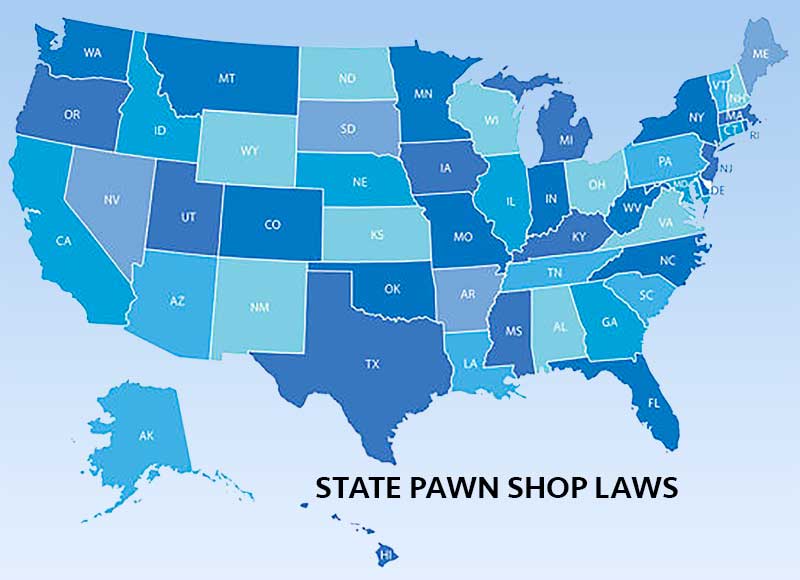Introduction
Pawn shops provide quick access to collateralized loans, which are frequently people’s only source of emergency funds. However, these companies’ activities must comply with a number of US state regulations. To promote truthful and transparent transactions, it is imperative that both clients and pawnbrokers are aware of these guidelines. This article examines state legislation that deal with pawn shops, highlighting significant variations and their implications.
Recognizing Regulations for Pawn Shops:
Pawn shop regulations involve a wide range of topics, such as interest rates, holding periods, license requirements, and reporting requirements. These laws are primarily intended to safeguard consumers from dishonest behavior and preserve the good name of the pawnbroking sector.
License prerequisites:
Getting a license is one of the main requirements of pawn shop legislation. Different states may use different approaches when it comes to licensing; some may require pawnbrokers to provide lengthy financial reports and undergo background checks, for example. Keywords: licensing requirements, pawn shop restrictions.
Interest Rates:
Another area governed by regulations is the interest rates on loans obtained from pawn shops. While some states regulate interest rates in order to prevent outrageous fees, others give pawnbrokers more latitude by letting them set their own rates as long as they stay within predetermined bounds. Determining the proper interest rate laws requires striking a compromise between consumer protection and corporate sustainability.
Holding Times:
Before pawned goods can be sold or forfeited, pawn shops usually keep them for a set amount of time. Customers are protected by this holding period, which allows them enough time to retrieve their possessions. The length of holding periods may be set by state regulations, which might vary depending on the kind of property pawned and the loan amount.
Reporting Requirements:
In an attempt to deter crime and maintain openness, pawnbrokers are required to submit reports to numerous governments. These responsibilities can involve informing law enforcement, complying with anti-money laundering laws, and compiling thorough transaction records. Pawnbrokers must abide by the reporting standards in order to conduct business legally.
Comparative Evaluation
Now, to illustrate the subtleties in technique, let’s look at the differences in pawn shop laws among a few states:
California
Pawn shops are subject to strict restrictions in California, which include comprehensive licensing procedures and interest rate caps. Pawnbrokers are required to get a license from the Department of Justice in the state and to charge no more than 2.5% interest each month. Pawnbrokers are also subject to stringent reporting requirements, including the frequent submission of transaction information to police authorities.
Texas
Texas, on the other hand, has a more liberal approach to pawn shop laws, permitting more latitude in terms of interest rates and holding times. There are no explicit interest rate caps in Texas, which gives pawnbrokers more freedom to choose the terms of loans even though they still need to obtain a license. To stop illegal activity, reporting procedures are still strict.
New York:
New York strikes a balance between business interests and consumer protection through a number of stringent regulations. Pawnbrokers in the state are expected to be licensed and to charge no more than 4% interest per month. Holding periods are typically thirty to ninety days, depending on the value of the pawned property. This is a relatively short amount of time. Strict reporting guidelines ensure accountability and deter unlawful activities.
Conclusion
Regulations governing pawn shops are required to protect customers and maintain the integrity of the pawnbroking sector. The primary objective is to maintain the promotion of truthful and open transactions in spite of national differences. Through understanding these rules and what they mean, both customers and pawnbrokers can easily navigate the pawn shop industry and achieve mutually beneficial outcomes. Keywords: comparative analysis, consumer protection, and laws pertaining to pawn shops.
In conclusion, a thorough grasp of state-specific laws and their ramifications is essential for successfully navigating the complex terrain of pawn shop rules. Pawnbrokers and consumers may both help to foster the development of a robust, transparent, and trustworthy pawnbroking business by continuing to be informed and compliant.




